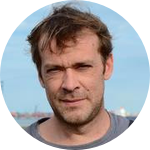
Mathijs van Overveld
Estación Biológica Donaña, Sevilla, Spain
Doctor
More
I have a broad interest in evolutionary and behavioural ecology. My research mainly focusses on the causes and consequences of individual variation in behaviour, with special emphasis on individual movement patterns and information gathering strategies. I’m particularly interested in how individuals cope with ecological and social challenging situations, and how such behavioural variation may shape population dynamical processes. Much of this interest has developed during my Ph.D., in which I studied the role of individual variation in behaviour in shaping patterns of dispersal in a small passerine, the great tit (University of Antwerp, Belgium). In the past two years, I was involved in a project on the movement ecology of Egyptian vultures living on the Eastern Canary islands, Spain (based at Estación Biológica Donaña, Sevilla) through a Marie Curie Fellowship from the European Union. In this project, I focussed specifically on individual variation in foraging decisions in relation to supplementary feeding, to quantify the relative ability of individuals to cope with human-induced environmental changes. During this work, I developed a keen interest in the social behaviour and social organization of Egyptian vultures or vultures in general. I also have a special interest in the functional significance of bird colouration. I studied this topic during my Master studies (University of Groningen, The Netherlands), where I have investigated the relationship between throat-feathers (ultraviolet colouration) and reproductive success in starlings, and the fitness consequences of yellow breast coloration in great tits. After my studies I was awarded a grant to participate in a project on intraspecific colour variation in the Crimson Rosella complex (University of Geelong, Australia). Other projects include work on the evolution of parental care in fairy martins (Australia) and Kentish plover (United Arab Emirates).
September 2017